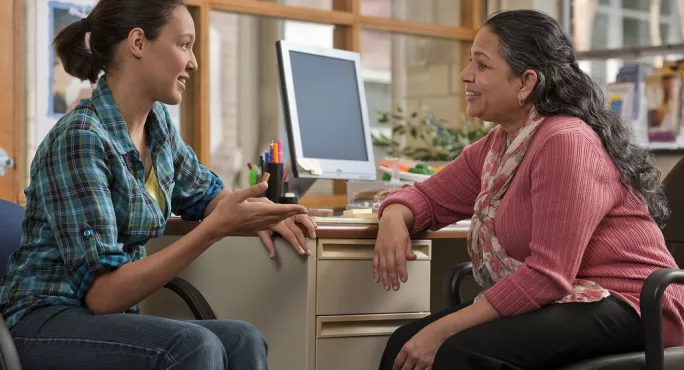- Home
- ‘Learning can help to heal a society fractured by Brexit’
‘Learning can help to heal a society fractured by Brexit’

One thing is clear amid the muddles and confusions of politics in recent years: we live in a deeply divided society. The economist Paul Collier states this in the strongest terms:
“Deep rifts are tearing apart the fabric of our societies. They are bringing new anxieties and new anger to our people…It is the regions rebelling against the metropolis; northern England versus London; the heartlands versus the coasts. It is the less educated rebelling against the more educated. It is the struggling workers rebelling against the ‘scroungers’ and ‘rent-seekers’.”
We spend less time together: we spend less time in the pub, less time on the high street; instead of team sports, we spend time alone in the gym. One consequence of individual replacing collective pursuits is that we spend much less time with those who are different from ourselves: many of us live in bubbles, mixing largely with those from similar backgrounds, often of similar ages and with similar beliefs; gated playgrounds now exist alongside gated communities. Debate on Brexit takes place online rather than in the pub, fixed views harden, and aggression becomes a norm on social media.
Read more: Devolution will widen skills gap, principal warns
Devolution: £630m in adult education funds handed to mayors
Background: Authorities to receive almost £1m to help implement adult skills devolution
Empathy: the basis for debate
Yet there remain places where discussion is encouraged and ideas and views shift as a consequence. Where listening, understanding and empathy are the basis for debate even when the views held are strong and varied. Adult education encompasses all four of Jacques Delors’ pillars of learning: “to know, to do, to be and to live together”. I particularly want to celebrate the ways in which it supports us “to be and to live together”.
At the end of a full-time access to HE course, Mona, a young Muslim woman, spoke of the prejudice she had previously held against anyone addicted to drugs or alcohol. Over this year, she had studied at City Lit and spent time with a number of fellow students in recovery from addiction; she now counts them as friends and realises that they are not so different. More than that, she values the insights gained from them into lives and connections beyond her own, and the way in which she has been included in social events, where she was concerned her hijab might set her apart.
Dave, a fellow student in his fifties, an ex-skilled manual worker who had lost his job through ill health, added: “We have learned so much from each other’s experiences in life and I have a renewed faith in people and myself that I can achieve whatever I set my mind to.”
‘The skills to be more open’
Another student wrote: “I have developed the skills to be more open with how I feel towards certain groups of people. I would not have called myself a racist but being involved in this course, I have learned that I am a bit racist and I need to challenge this within myself. I feel that I have been a ‘sheep’ and followed the crowd as to how the media or how other people treat certain groups. This has led me to have a very one-sided view of people from different cultures and backgrounds.”
These are significant changes of behaviour and viewpoint. In a recent survey, 97 per cent of students said that they got on better with people different from themselves as a result of studying at this college. What shines through their comments is the joy they have in learning; the hope it has given them; I don’t think it is an overstatement to say also the love they have for their fellow students.
This is not new. 2019 is the centenary of the influential Ministry of Reconstruction’s report on adult education, which also celebrated the ways in which the “problems of social life” might be discussed by “students [who] bring to the class a varied and valuable experience of life”. Prior to this in the 1890s Mary Ward made “equalisation” one of the founding principles of the settlement which still bears her name, equalisation being open access to education where people from all backgrounds work and learn alongside each other.
Opening hearts and minds
Adult education achieves many things. It can help people to develop new skills and gain new qualifications; it has a positive impact on mental and physical health; it supports those dealing with life transitions like becoming parents or retiring; it develops a critical understanding of the world around us and the ability to distinguish truth from fiction; it is a step towards social cohesion. And, importantly, it means working alongside others, often very different from ourselves, with a shared sense of purpose.
There is no one simple solution to the complex issues that have led to our divided society, but for me the most powerful feature of adult education is the way in which it can open hearts as well as minds, leading us to treat those around us with respect, love and empathy.
Jill Westerman is a governor of City Lit, and is former principal of Northern College in Barnsley
Keep reading for just £1 per month
You've reached your limit of free articles this month. Subscribe for £1 per month for three months and get:
- Unlimited access to all Tes magazine content
- Exclusive subscriber-only stories
- Award-winning email newsletters
